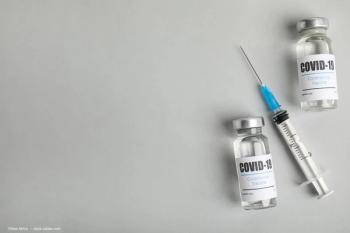
COVID-19: Canadian study finds mask mandates limit spread
Canadian researchers have found that wearing a mask can have a significant impact on the spread of COVID-19.
Canadian researchers have found that wearing a mask can have a significant impact on the spread of coronavirus disease 2019 (COVID-19).
The Investigators, from Simon Fraser University's Department of Economics, have determined that mask mandates are associated with a 25 percent or larger weekly reduction in COVID-19 cases.
In the US, the CDC has indicated that “wearing masks can help communities slow the spread of COVID-19 when worn consistently and correctly by a majority of people in public settings, and when masks are used along with other preventive measures, including social distancing, frequent handwashing, and cleaning and disinfecting.”
Mask mandates and the use of personal protective equipment remains a key issue in ophthalmology, with a high level of concern that even routine procedures could result in the spread of respiratory droplets. As a result, many centers require masks for all patients.
According to the Canadian study, which is in preprint and not yet peer-reviewed, mandating indoor masks nationwide in early July could have reduced the weekly number of new cases in Canada by 25 to 40 percent in mid-August, which translates into 700 to 1,100 fewer cases per week.
According to a press release, the investigators analyzed the impact of mask mandates that were implemented across Ontario's 34 Public Health Units (PHUs) over the course of two months.
Researchers compared the results of PHUs that adopted mask mandates earlier to those that adopted mandates later.
They determined that, in the first few weeks after their introduction, mask mandates were associated with an average weekly reduction of 25 to 31 percent in newly diagnosed COVID-19 cases, relative to the trend in mask mandate absence, in July and August.
A further Canada-wide analysis with province-level data found a significantly negative association between mask mandates and subsequent COVID-19 case growth - up to a 46 percent average reduction in weekly cases in the first several weeks after adoption.
These results were supported by additional survey data that showed mask mandates increase self-reported mask usage in Canada by 30 percentage points, suggesting that the policy has a significant impact on behavior.
Jointly, these results suggest that mandating indoor mask wear in public places is a powerful policy measure to slow the spread of COVID-19, with little associated economic disruption in the short term, according to investigators.
The study also found that relaxed restrictions on businesses and gatherings (including retail, restaurants and bars) were positively associated with subsequent COVID-19 case growth, a factor that could offset and obscure the health benefits of mask mandates.
The most stringent restrictions on businesses and gatherings observed in the data were associated with a weekly decrease of 48 to 57 percent in new cases, relative to the trend in the absence of restrictions.
The investigators noted in the release that while the results are significant, their sample period does not allow them to definitively say whether the effect of mask mandates persists or weakens beyond the first few weeks after implementation.
However, they conclude that, combined with other policy measures, mask mandates can be a potent policy tool for slowing the spread of COVID-19.
Newsletter
Don’t miss out—get Ophthalmology Times updates on the latest clinical advancements and expert interviews, straight to your inbox.





























